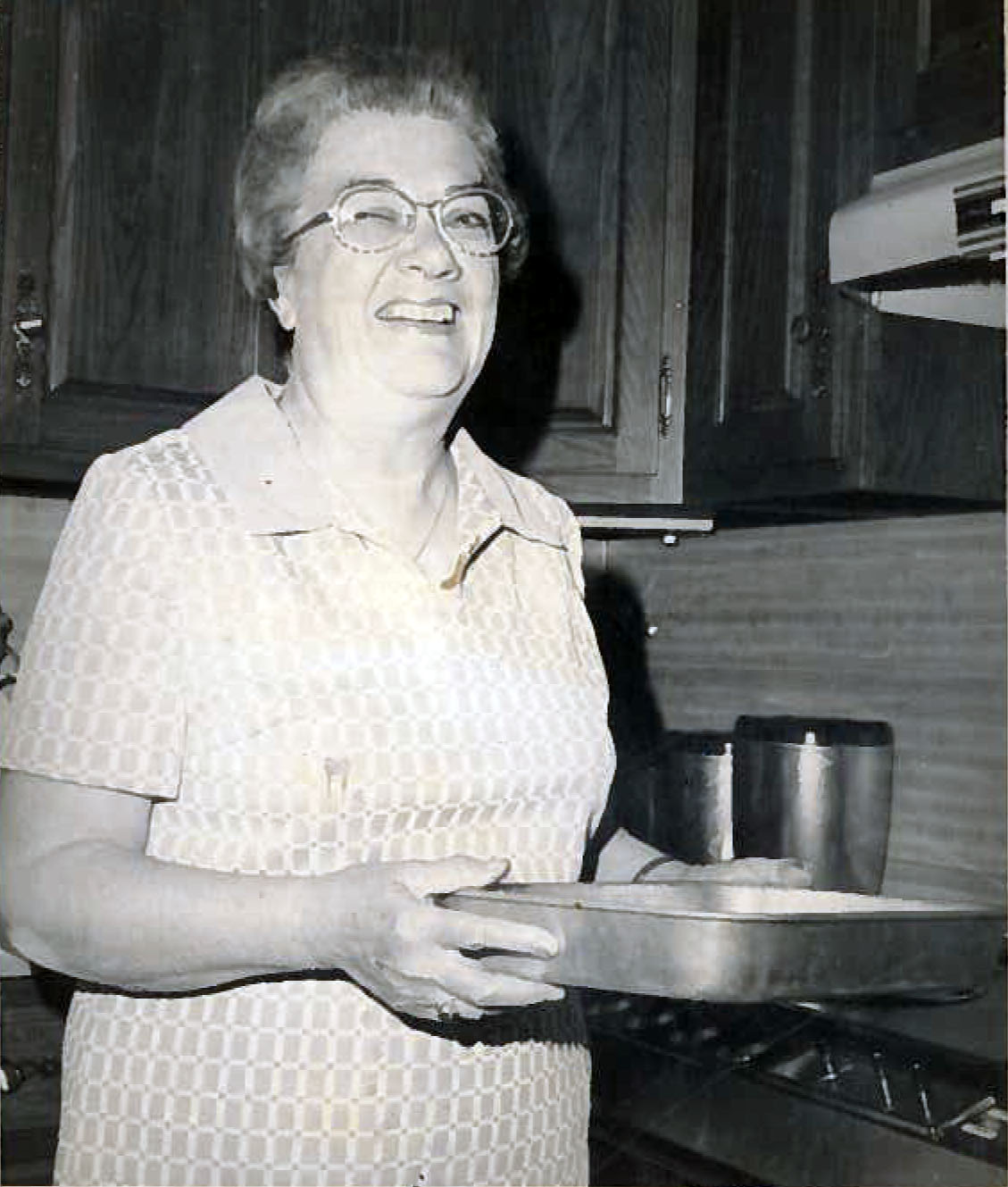 Grace,
Grace,  kindness,
kindness,  stewardship
stewardship  Monday, August 20, 2012 at 12:03AM
Monday, August 20, 2012 at 12:03AM  I’ve decided to do a bit of griping today—but only for one paragraph. Be warned. Here it comes.
I’ve decided to do a bit of griping today—but only for one paragraph. Be warned. Here it comes.
The blogosphere is filled with criticism, finger pointing and name-calling between family members. A famous Christian minister says something stupid (and it was stupid) and before you can say “trending topic” he is pummeled by criticism from others within the faith. Someone is hurt by their mistreatment at a local church, so they adopt Lone Ranger status and start a new blog about how the “real” church has nothing to do with organized religion. One faction of believers promotes an opinion and, in response, another faction labels them heretical or dangerous. It’s Jersey Shore for believers, only uglier.
There. I vented for one paragraph. But—no surprise—I don’t feel any better, nor have I changed anyone’s opinion or behavior. We all remain the same.
There’s a more excellent way. In my frustration, I reach for an island of transcendent sanity. I turn the pages until I read: “The end of all things is near. Therefore be alert and of sober mind so that you may pray. Above all, love each other deeply, because love covers over a multitude of sins. Offer hospitality to one another without grumbling. Each of you should use whatever gift you have received to serve others, as faithful stewards of God’s grace in its various forms.” (1 Peter 4:7-10)
One phrase shines through the layers of meaning in Peter’s words: “love covers over a multitude of sins.” He is talking about a community of people who gave received the great treasure of God’s grace and are called upon to steward that treasure by how they treat one another. This stewardship includes the kind of love capable of protecting others from themselves: love refuses to reveal the sinfulness of others. To publicly expose the sins of others indicates a lack of love.
Who will help me? In my shameful state I need a love that throws a garment over of my ugly nakedness—the nakedness I have put on display by my selfish, egotistical, controlling words and choices toward others. Who will protect me if not the members of my own family?
This week’s meditation is a quiet reflection and openness toward the Holy Spirit. He can help us explore the depth of our love toward others. We can simply ask him: Does my love cover other's sin?
There's a difference between excusing sin and covering it. Can I hold people—especially members of God’s family--accountable without exposing them?
Our call to steward God’s grace goes beyond our personal relationships and extends to everyone with whom the Father has a personal relationship. It means we learn to love others for simply no other reason than that the Father loves them. It means loving all the church. When I rail against the sins of the church I am simply demonstrating my lack of love for her.
We are each given a stewardship of grace. We can be like the man who foolishly held his one talent and chose not to multiply it. We can keep God’s grace to ourselves, or multiply God’s grace by extending it to others.
 Wednesday, August 15, 2012 at 10:58PM
Wednesday, August 15, 2012 at 10:58PM  I know a guy who grew up in the kind of Christian home where going to the movies was considered sinful. The lure of forbidden fruit was strong: he longed to go to the movies and see exactly what was so wicked. The only thing that kept him from sneaking away to the theater was the nagging fear: what would happen to him if Jesus came back at the exact hour he was inside a movie theater?
I know a guy who grew up in the kind of Christian home where going to the movies was considered sinful. The lure of forbidden fruit was strong: he longed to go to the movies and see exactly what was so wicked. The only thing that kept him from sneaking away to the theater was the nagging fear: what would happen to him if Jesus came back at the exact hour he was inside a movie theater?
I know another guy who was determined to never say “never” to God, because he was sure that God would enforce upon him the one thing he never wanted to do! I suggested that he tell the Almighty that he would never serve God in Hawaii, but my friend was not amused.
We carry conflicting ideas about God’s heart. With our heads we boldly believe that God is willing to pay any price for the redemption of mankind but with our hearts we cannot believe that God loves us personally. True, God “so loved the world” that he sent his Son to save us all, but loving the world doesn’t mean that God loves me.
Our theology allows for the love of God. Do our hearts allow it?
The answer does not come easily. Our hearts--each one of us--resist the idea that anyone could love us unconditionally. Married couples can remain together for years and still find themselves driven by the fear of rejection even though their spouse has demonstrated love time and again. Even in healthy, balanced families children have no real grasp of their parent’s love until they themselves become parents. Our insecurities run like subterranean rivers, watering our fears from below even when our surface life is filled with love and acceptance.
Jesus knew human nature all too well. He understood the pressures to perform for acceptance, and the fears of rejection. In one amazing passage he both acknowledges our shortcomings as human beings and uses our very faults to assure us of God’s love--God’s personal, one-on-one love for each of us: "Which of you, if his son asks for bread, will give him a stone? Or if he asks for a fish, will give him a snake? If you, then, though you are evil, know how to give good gifts to your children, how much more will your Father in heaven give good gifts to those who ask him!" (Matthew 7:9-11)
In this passage I see and feel the genius of our Lord. Jesus saw the imperfect love of fathers and mothers. It’s something we all have seen. We see mothers who lose patience and fathers who are preoccupied. We watch at grocery stores as parents speak sharp words when children don’t deserve a rebuke. If we are parents ourselves, we know firsthand how often the well of devotion runs dry and we have little or nothing left to give. Yet we also know that even in our weakness we would never substitute stones for bread or snakes for fish. We may not always be up to the task of love, but we will not harm our children. Jesus used our failings to encourage us that a perfect Father can love completely.
Somehow we are tempted to change the equation when it comes to God. We do not see his perfection as a perfection of heart, but only a perfection of holiness. We may address him as “Father” but we have no real certainty the word means the same thing when we are talking about God.
Jesus came not only to save: he came to demonstrate the possibilities of a life-giving relationship with the Father. Religious authorities were scandalized by his intimacy with the Holy God of Abraham. Who would dare call the Creator of the universe “Papa”? The mind-blowing answer is not simply that Jesus would dare to do such a thing, but that he invites us to do the same.
The Apostle Paul understood the bold invitation presented by Jesus. In the soaring beauty of Romans, chapter eight, Paul challenges us to considers the possibilities of a life-giving relationship with Papa. Not simply forgiveness of sin, but daily, joyful interaction with a Father who delights to be with us: "For you did not receive a spirit that makes you a slave again to fear, but you received the Spirit of sonship. And by him we cry, 'Abba, Father.' The Spirit himself testifies with our spirit that we are God's children." (Romans 8:15-16) Not God’s children in some legal sense. Not children in some metaphor. We are really children, and really his. Toward the end of the chapter Paul reminds us that Jesus was the “firstborn” specifically for the reason that God wanted many more children. No servants, but sons and daughters.
We can read these words, think these thoughts, and still jump to the next web page unaffected. It takes the presence of God’s Holy Spirit to break through. The Holy Spirit is with you right now, where you sit and read.
What’s your hurry? Take moment, take a breath, and pray a prayer:
Spirit of God, will you come here--right now--and bring the heart-knowledge that my Father loves me?
 Monday, August 13, 2012 at 07:09AM
Monday, August 13, 2012 at 07:09AM  Perhaps it’s blindingly obvious: the books of the Bible were written by writers. Storytellers, poets, songwriters, historians, correspondents, legal scholars and apocalyptic dreamers. The Holy Spirit breathed upon each one, opened their hearts and ears and eyes to the spiritual realities around them. But they were still writers. They struggled to capture the inspired moment of clarity and present a finished work capable of blessing generations to come.
Perhaps it’s blindingly obvious: the books of the Bible were written by writers. Storytellers, poets, songwriters, historians, correspondents, legal scholars and apocalyptic dreamers. The Holy Spirit breathed upon each one, opened their hearts and ears and eyes to the spiritual realities around them. But they were still writers. They struggled to capture the inspired moment of clarity and present a finished work capable of blessing generations to come.
Peter described it this way: “the prophets, who spoke of the grace that was to come to you, searched intently and with the greatest care, trying to find out the time and circumstances to which the Spirit of Christ in them was pointing when he predicted the sufferings of the Messiah and the glories that would follow.” (1 Peter 1: 10-11)
The writers searched intently, but the Spirit did not leave them alone. It was an inspired collaboration. The prophet Habakkuk--that discontent, whining, and wondering man who inspired the Apostle Paul--recorded the process of capturing God’s flash of inspiration. It’s a lesson to us today as well:
"I will stand at my watch and station myself on the ramparts; I will look to see what he will say to me, and what answer I am to give to this complaint.
Then the Lord replied:
Write down the revelation
and make it plain on tablets
so that a herald may run with it.
For the revelation awaits an appointed time;
it speaks of the end
and will not prove false.
Though it linger, wait for it;
it will certainly come
and will not delay." (Habakkuk 2: 1-3)
Here are four observations capable of making us partners with the Spirit’s inspiration:
“I will stand at my watch and station myself on the ramparts . . .” We ourselves create the space to receive revelation. Habakuk purposefully took up the position of watchman, alone and vigilant, eager and confident that the Lord would speak to him. He was not disappointed; he had prepared himself for when the moment came.
“Make it plain . . . “ God favors clarity. Beauty and art flow from inspiration--and the clear expression of what he illuminates. There is a time to scatter rose petals among our words, but first comes content. Our words should carry a meaning so clear that even people in a hurry can get the idea.
“The revelation awaits an appointed time . . .” Strangely, the appointed time is seldom in the heat of battle. When social debate rages back and forth in public media we are exposed to the heat of passion, but there’s not much light. The prophets spoke to their day, but the prophetic message carried eternal weight. Neither human emotion nor intellect equal divine revelation--it comes only from God, and it comes only in his timing.
“Though it linger, wait for it; it will certainly come . . .” That's right: wait for it. Habakkuk stationed himself. He also waited. In the rush to say something important we often miss the opportunity to hear something eternal. Waiting is the discipline of writers who speak to generations. You can speak to the moment or you can speak to the ages--you can rarely do both.
I believe in the inspiration of the scripture, but I don’t believe the Holy Spirit used us as robots, forcing us to mindlessly scribble words we didn’t understand. We have a role to play, a role that compliments the word of the Spirit. Habakkuk shows us how it’s done.
 Thursday, August 9, 2012 at 12:02AM
Thursday, August 9, 2012 at 12:02AM  It's a really old joke:
It's a really old joke:
Once there was a boy sitting on a porch, with a dog next to him. A salesman approached the porch and asked the boy, “Does your dog bite?”
“Nope,” said the boy.
The salesman stepped on the porch to ring the doorbell and the dog viciously bit his leg. “I thought you said your dog didn’t bite!” screamed the salesman.
“My dog doesn’t bite,” said the boy. “But that’s not my dog.”
Sometimes asking the right question can make all the difference.
One of the great obstacles in becoming a follower of Jesus is learning to ask the right questions. The disciples wanted to know who among them was the greatest. The Pharisees wanted to know by what authority Jesus did his powerful works. Pontius Pilate wanted to know, “What is truth?” even as Truth Himself stood facing him. It’s clear they all missed the point. We can, too.
The questions we bring to Jesus can make a big difference in our journey of transformation. We live in a religious culture that craves correct answers, but what if we place correct answers above a relationship with God? There’s nothing wrong with correct answers: we won’t get very far believing that two plus two equals twenty-two--but you can do the math all day long and still not know God.
“There is today no lack of Bible teachers to set forth correctly the principles and doctrines of Christ . . . strangely unaware that there is in their ministry no manifest Presence, nor anything unusual in their personal lives.” ~ A.W. Tozer
I consider everything a loss compared to the surpassing greatness of knowing Christ Jesus my Lord, for whose sake I have lost all things. I consider them rubbish, that I may gain Christ . . . I want to know Christ and the power of his resurrection and the fellowship of sharing in his sufferings, becoming like him in his death, and so, somehow, to attain to the resurrection from the dead.” Philippians 3: 8 & 10 (I omitted verse 9 in order to emphasize Paul’s point.)
 Monday, August 6, 2012 at 12:25AM
Monday, August 6, 2012 at 12:25AM  I sing today in praise of grandmothers. Those loving, accepting, wiser-than-they-let-on souls who never stop welcoming you no matter your age. They feed you at the drop of a napkin and pile your plate high with food prepared by ethereal love. Grandma would never think of holding back the mashed potatoes--she’ll give you a portion obscenely large, carbohydrates mountain-high flowing with gravy rivers.
I sing today in praise of grandmothers. Those loving, accepting, wiser-than-they-let-on souls who never stop welcoming you no matter your age. They feed you at the drop of a napkin and pile your plate high with food prepared by ethereal love. Grandma would never think of holding back the mashed potatoes--she’ll give you a portion obscenely large, carbohydrates mountain-high flowing with gravy rivers.
A stingy granny is an oxymoron, a sad misfit of nature. Honestly, who thinks their grandmother wouldn’t give all she had? And yet--beloved as she might be--your grandmother doesn’t set a table like Jesus.
Consider these few words from Ephesians: “But to each one of us grace has been given as Christ apportioned it.” (4:7) Now stop and ask, what kind of portion would Jesus give? No one has trouble imagining the goodness of grandma. Why then is it so hard to imagine the grace of God flowing out in portions high and deep, prepared in a kitchen where the supply never ends and the Master Chef knows our every need?
Read it again: “But to each one of us grace has been given as Christ apportioned it.” So many of us stumble on the word "apportion." We let our fears tell us that Jesus will somehow hold something back because of our boneheaded behavior or headstrong ways. We are tempted to think he will only feed us when we’ve been good, or when he needs us to do something for him.
“Ahem, ahem,” says the short theologian with a flower in her hat. “Paul is talking about gifts like apostle, prophet, evangelist, pastor or teacher. Always read the context,” she says. “Paul is talking about how Jesus provides for the church. It’s a specific kind of grace. We should not expect he gives everyone the same portion.” Then the confining logic of loveless interpretation begins to close us in.
Perhaps, I say. Perhaps that’s true. Except I’ve supped at his table, I’ve feasted with him in the here and now, before his great marriage feast is even under way. I can tell you he piles the grace high and deep. Not just forgiving grace: grace for hope, grace for starting again, grace for growth, the grace of leadership, community, love, and vision. He makes new wine for those who have already had too much. He feeds multitudes and leaves baskets more behind.
If we need context for this one verse I choose the context that reminds us “He who did not spare his own Son, but gave him up for us all—how will he not also, along with him, graciously give us all things?” --or-- “Out of his fullness we have all received grace in place of grace already given.”
If you have trouble with the idea that Christ apportions grace, perhaps it’s because those who taught you that verse lost sight of what size portions Jesus gives. For a joyful mediation, imagine the Lord of glory ringing the bell on the front porch, calling out across the ranch:
Ho! Everyone who’s thirsty,
come to the waters;
and you who have no money,
come, buy and eat!
Come, buy wine and milk
without money and without cost.
Why spend money on what is not bread,
and your labor on what does not satisfy?
Listen, listen to me, and eat what is good,
and you will delight in the richest of fare.